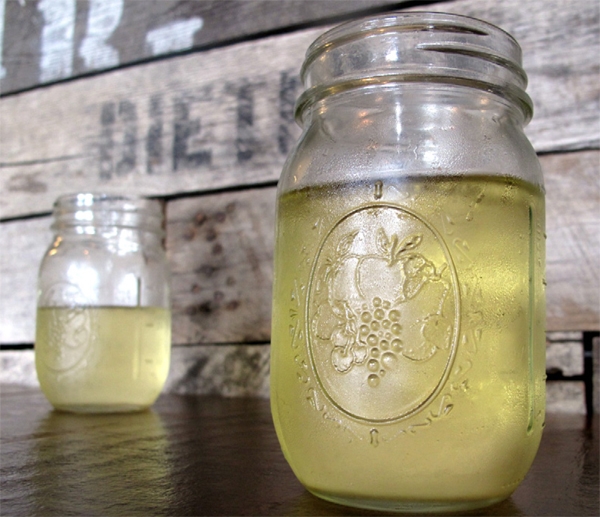Legend has it that during the mid-19th century, hard cider (henceforth referred to simply as cider) was a mainstream staple of the old-timey U.S. consumers. In fact, scholars maintain that the alcoholic beverage was so mainstream, a significant part of workers' salaries were paid in cider until some kind of bogus amendment in 1887 made it illegal.
Shortly thereafter, German immigrants came to America armed to the teeth with beer propaganda, effectively pushing cider into our peripherals until it reared its apple-flavored head again over the last few years.
Cider is back, which is good news for us.
"I think that it's definitely due to craft brew, and not just craft brew like Founders, but also craft brew like the home brew movement," said Jason Lummen, a Grand Rapids native who founded his own brand called The Peoples Cider. "Where we find ourselves now is all of the sudden we're seeing cider as craft and starting to recognize that as part of the industry."
The Peoples Cider wasn't an official company until June 2011 and as it gained popularity, Lummen set up shop on the northeast side of Grand Rapids.
While a lot of commercial ciders exploit the sweeter side of the beverage, Lummen wanted something drier and more drinkable modeled after what he saw while studying abroad in Europe, and with all of #PureMichigan's resources at his disposal, found himself on the front lines of the so-called "cider renaissance."
Geographically speaking, Michigan is the third largest producer of apples in the Midwest, making for easy access to the locally grown crop. However, as an added bonus, Lummen said West Michigan apples have a correct sugar and acid content for juicing and subsequently for making cider.
"I take time with it. I don't sulfate or condition my cider in any way," he said. "I tend to work more holistically with the winemaking process."
Sietsema Orchard in Ada is another local micro-cider maker that takes a more holistic approach to the fermentation process, which inherently creates a drier cider that owner Andy Sietsema says appeals to the craft beer crowd. Sietsema's most popular cider, however, is still the red label, their sweetest flavor.
"I will say that with the consumer, the cider maker, or us local micro-cider makers, have this kind of education process about what real cider is," Sietsema said. "I let them know what the macro ciders are without putting them down too much. Us small guys do need those macros still, too. They're bringing a lot of notoriety to cider, you know, nationally."
According to a consumer report issued by Nielsen in November 2012, ciders grew in popularity by 65 percent in the U.S. from 2011 to 2012, with 54 new items added to the market over that same time period. The report claims the "small category" is poised for "big growth" over the next few years, attributing their projections to three major factors: the craft beer movement, national distribution and more than anything else, the millennial generation.
Cider also finds strength in its ingredients. Made only with fruit juice and no grain whatsoever, the gluten-free refreshment creates an alternative to beer for people with dietary restrictions.
West Michigan cider production is also extending beyond the state, with brands like Vander Mill Cider in Spring Lake making waves not only locally, but in the Chicago area, too. In May, the company underwent a $600,000, 3,500-square-foot facilities expansion to accommodate the 100,000 gallons of hard cider they expect to produce this year. Vander Mill Cider is now sold at more than 600 retail outlets and 200 pubs in Michigan and the Chicago area.
The increased demand is true for Sietsema, too, who recently signed on with a distributor after self-distribution to 15 or so local retailers became too hard to keep up with. He's making his cider more available not only in West Michigan, but on the east side of the state, and he expects his number of retailers to triple.
"It's that craft beer person who is looking for something here in West Michigan that's right out of their back door, so to speak," Sietsema said.





